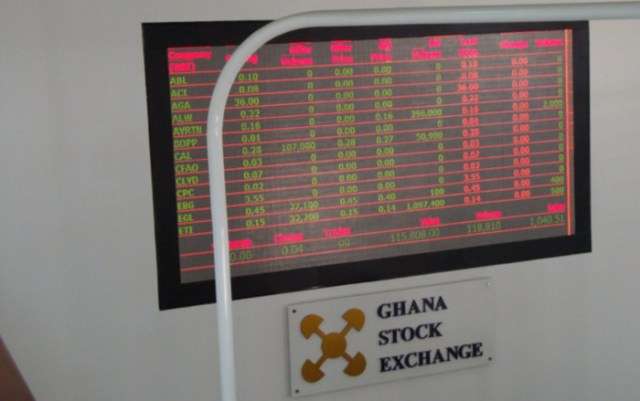Databank Research has predicted that the Ghana Stock Exchange Composite Index (GSE-CI) will end the full year, 2023 at 2,740 points.
According to Databank Research, the market will return to the positive trajectory after ending 2022 as the worst performing stock market in Africa.
“From the perspective of technical analysis of the stock market, we forecast the GSE-CI [GSE Composite Index] to close full-year 2023 at around 2,740 points, translating into an expected annual gain of 12.00% (±500bps).”
Databank Research
Databank research explained that most investors will favour stocks of high-quality companies with good fundamentals, defensive quality and reasonable pricing power. These stocks, it said, can provide investors with consistent dividends.
Among these favourites are MTN Ghana and the Oil Marketing Companies. The research firm also expects agro processing firm, Benso Oil Palm Plantation (BOPP) to do well this year, continuing its good dividend payout history.
The stock market has since this year recorded about 1.46% return in cedi term for investors. However, in dollar term, the exchange has recorded a negative return. This is due to the year-to-date loss of the cedi to the dollar.
Notwithstanding the current prediction, there are some experts who think returns of the GSE Composite and GSE Financial Stock Index this year will follow last year’s patterns and are likely to decline further as a result of the economic challenges the country is facing.
Currently, the GSE Composite Index (GSE-CI) stands at 2,518.06 points, while the GSE Financial Stocks Index (GSE-FSI) also stands at 1,884.87 points.
Review of 2022 Performance
In what was a turbulent year across markets, the Ghana Stock Exchange (GSE) was spared a worse decline by the performance of some financial sector stocks in 2022.
While the GSE Composite Index (GSE-CI) which measures the broad market closed the year with annual returns of -12.38 percent, compared to 43.66 percent at the end of 2021, the GSE Financial Stock Index (GSE-FSI) – which tracks the performance of financial sector stocks – ended 2022 at -4.61 percent versus the 20.70 percent return recorded a year earlier.
This was on account of major price recoveries seen in banking and insurance stocks: including SIC Insurance Company Limited (SIC), Trust Bank Gambia Limited (TBL), Access Bank Ghana (ACCESS), Enterprise Group Limited (EGL) and Ecobank Transnational Incorporated (ETI).
The development was attributed partly to the 2021 full-year performance of the financial sector, as well as the historical undervaluation of stocks in the sector.
Overall, SIC had the highest year-to-date increase with a gain of 287.5 percent; ending the year at GH¢0.31 from GH¢0.08 at the turn of last year. This reflected the market’s reaction to a stellar 2021, when the insurer grew post-tax profit by 414.6 percent to GH¢60.3million from GH¢14.55million.
Other companies that saw growth in their share prices included TBL, ACCESS, Benso Oil Palm Plantation Limited (BOPP), EGL, Guinness Ghana Breweries Limited (GGBL) and ETI, with year-to-date gains of 135.29 percent, 27.30 percent, 15.04 percent, 14.7 percent, 13.89 percent and 7.14 percent, respectively.
It was not all rosy with financial stocks, as some banks saw their share prices decline sharply. Cal Bank (CAL) recorded a year-to-date slump of -25.29 percent, with GCB Bank (GCB) at -24.81 percent; and Societe General, Ecobank Ghana and Republic Bank followed suit with -16.67 percent, -12.63 percent and -10 percent respectively.
The manufacturing sector’s woes, propelled by supply chain constraints and the rising cost of inputs, continued as Unilever Ghana Limited (UNIL), Produce Buying Company Limited (PBC), Fan Milk Plc (FML) and Intravenous Infusion Limited (IIL) closed the year with the biggest losses of -34.13 percent, 33.33 percent, 25 percent and 20 percent respectively.
Despite being the most traded stock, market leader MTN endured a torrid time in the year as its share price tumbled from GH¢1.11 to GH¢0.88 at the end of December 2022, representing a year-to-date decline of 20.72 percent.
This was attributed, in part, to concerns about the tech giant’s profitability due to developments such as the E-levy. This resulted in a retreat by offshore investors, whose contribution to equity trades fell from 69 percent at beginning of the year to 62 percent.
READ ALSO: Ga People Will Feature Prominently In My Governments- Kyerematen To Ga Mantse




















